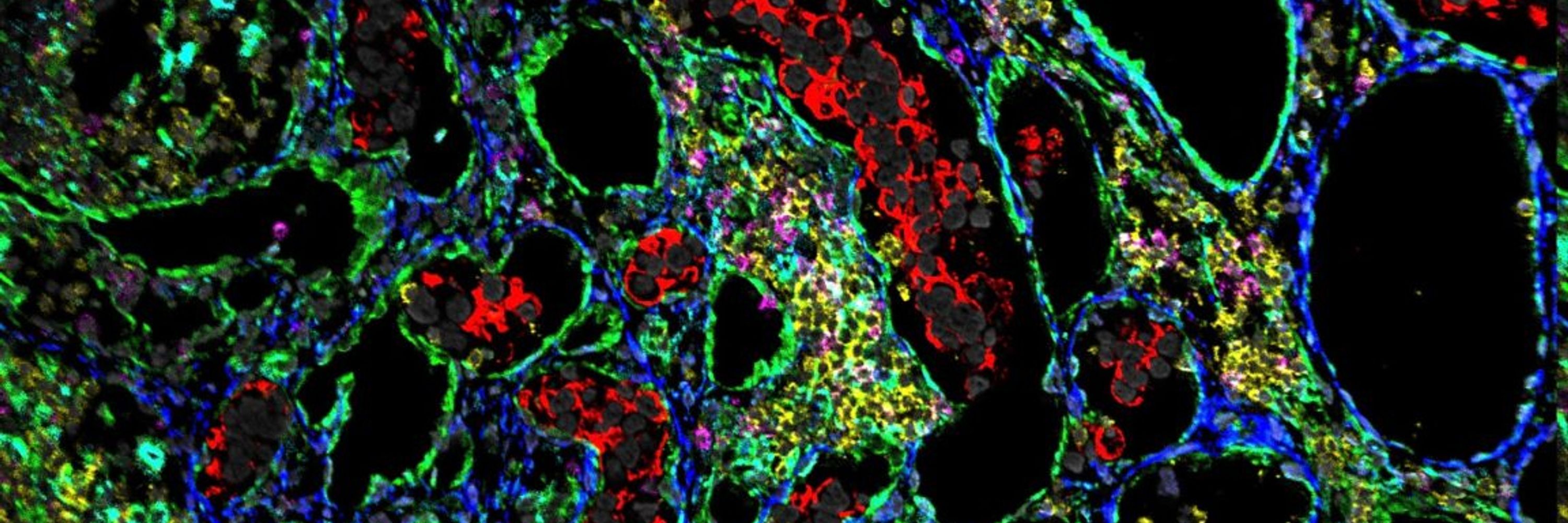
Damon Runyon Cancer Research Foundation
@damonrunyon.org
Funding brave and bold since 1946.
damonrunyon.org
damonrunyon.org
Reposted by Damon Runyon Cancer Research Foundation
The Clinical Investigator Award program was designed to increase the number of physician-scientists capable of translating discoveries in the lab into new treatments for cancer patients.
@tanaya-shree.bsky.social was recognized as one of five new @damonrunyon.org Clinical Investigators in 2025.
@tanaya-shree.bsky.social was recognized as one of five new @damonrunyon.org Clinical Investigators in 2025.

July 21, 2025 at 3:18 PM
The Clinical Investigator Award program was designed to increase the number of physician-scientists capable of translating discoveries in the lab into new treatments for cancer patients.
@tanaya-shree.bsky.social was recognized as one of five new @damonrunyon.org Clinical Investigators in 2025.
@tanaya-shree.bsky.social was recognized as one of five new @damonrunyon.org Clinical Investigators in 2025.
Learn more about these projects and our new Clinical Investigators:
Damon Runyon Cancer Research Foundation awards $4.2 million to clinical cancer researchers
www.damonrunyon.org
July 15, 2025 at 3:16 PM
Learn more about these projects and our new Clinical Investigators:
@tanaya-shree.bsky.social is researching the most effective design for a new type of immunotherapy, known as T-cell engaging bispecific antibodies, which bring T cells close to tumor cells and induce them to kill the tumor cell.
July 15, 2025 at 3:16 PM
@tanaya-shree.bsky.social is researching the most effective design for a new type of immunotherapy, known as T-cell engaging bispecific antibodies, which bring T cells close to tumor cells and induce them to kill the tumor cell.
Srivatsan Raghavan, MD, PhD, aims to uncover how pancreatic cancer cells become resistant to KRAS inhibitors (which target the KRAS gene) and develop combination therapies to overcome this resistance.
July 15, 2025 at 3:16 PM
Srivatsan Raghavan, MD, PhD, aims to uncover how pancreatic cancer cells become resistant to KRAS inhibitors (which target the KRAS gene) and develop combination therapies to overcome this resistance.
Peter G. Miller, MD, PhD, studies how mutations in blood cells give rise to pre-malignant blood conditions such as clonal hematopoiesis, which can develop into leukemia. He hopes to develop strategies to predict and prevent lethal blood cancers.
July 15, 2025 at 3:16 PM
Peter G. Miller, MD, PhD, studies how mutations in blood cells give rise to pre-malignant blood conditions such as clonal hematopoiesis, which can develop into leukemia. He hopes to develop strategies to predict and prevent lethal blood cancers.
@bkeenanmdphd.bsky.social is investigating how liver disease suppresses immune function and interferes with liver cancer treatment. She hopes to find combination therapies that can enhance the effectiveness of immunotherapy for these patients.
July 15, 2025 at 3:16 PM
@bkeenanmdphd.bsky.social is investigating how liver disease suppresses immune function and interferes with liver cancer treatment. She hopes to find combination therapies that can enhance the effectiveness of immunotherapy for these patients.
Jonathan Chou, MD, PhD, seeks to identify targetable proteins on the surface of bladder cancer cells, with the goal of engineering new cellular therapies for bladder cancer patients.
July 15, 2025 at 3:16 PM
Jonathan Chou, MD, PhD, seeks to identify targetable proteins on the surface of bladder cancer cells, with the goal of engineering new cellular therapies for bladder cancer patients.
More about the new Quantitative Biology Fellows:
Damon Runyon Cancer Research Foundation awards Quantitative Biology Fellowships to five cutting-edge scientists
www.damonrunyon.org
June 4, 2025 at 7:57 PM
More about the new Quantitative Biology Fellows:
Aaron Zweig, PhD, is modeling how RNA expression evolves in a cell over time using advanced geometry, deep learning models, and CRISPR gene-editing technology. He aims to be able to predict evolution in regions susceptible to cancerous mutation.
June 4, 2025 at 7:57 PM
Aaron Zweig, PhD, is modeling how RNA expression evolves in a cell over time using advanced geometry, deep learning models, and CRISPR gene-editing technology. He aims to be able to predict evolution in regions susceptible to cancerous mutation.
Ruoyu Wang, PhD, will combine generative AI models with single-molecule genomics to uncover how mutations in non-coding regions of the human genome contribute to various hallmarks of cancer.
June 4, 2025 at 7:57 PM
Ruoyu Wang, PhD, will combine generative AI models with single-molecule genomics to uncover how mutations in non-coding regions of the human genome contribute to various hallmarks of cancer.
Sohyeon Park, PhD, will combine experimental and computational approaches to elucidate how immune cells called macrophages form “memories,” which cause them to either fight tumors or protect them, depending on prior experience.
June 4, 2025 at 7:57 PM
Sohyeon Park, PhD, will combine experimental and computational approaches to elucidate how immune cells called macrophages form “memories,” which cause them to either fight tumors or protect them, depending on prior experience.
@paulklauser.bsky.social is using advanced protein modeling to develop radiopharmaceuticals, or drugs that contain radioactive forms of chemical elements, to improve diagnostic imaging and targeted radiation therapy.
June 4, 2025 at 7:57 PM
@paulklauser.bsky.social is using advanced protein modeling to develop radiopharmaceuticals, or drugs that contain radioactive forms of chemical elements, to improve diagnostic imaging and targeted radiation therapy.
Simone Bruno, PhD, will investigate how changes in DNA packaging affect breast cancer progression and treatment response, with the goal of finding ways to mitigate therapy resistance and reduce cancer recurrence.
June 4, 2025 at 7:57 PM
Simone Bruno, PhD, will investigate how changes in DNA packaging affect breast cancer progression and treatment response, with the goal of finding ways to mitigate therapy resistance and reduce cancer recurrence.

